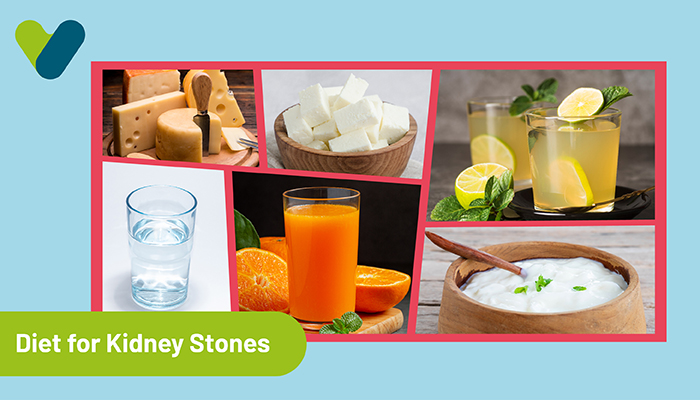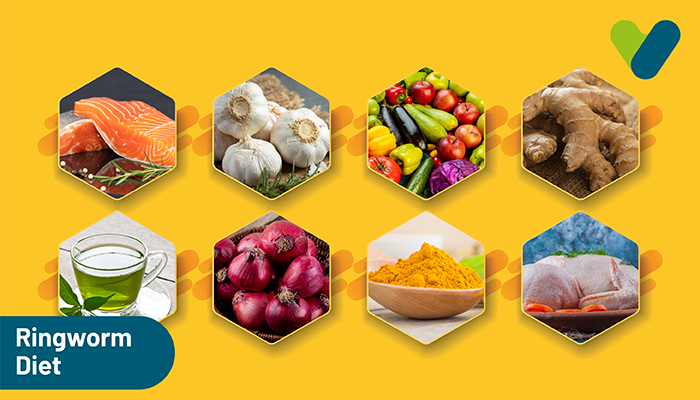What are kidney stones?
Kidney stones are hard deposits of waste materials like calcium combined with chemicals like oxalate or phosphorous. Stones can happen if the concentration of these substances becomes so high that they turn into crystals and solidify into larger masses. A uric acid build-up can also result in kidney stones. Inadequate protein metabolism usually results in the uric acid build-up.What are the foods that cause kidney stones?
Not drinking enough water or fluids for a prolonged period can lead to dehydration and infrequent urination. As a result, the incidence of kidney stone increases. Around 8 to 12 glasses of water or fluid is ideal for intake. Besides a lack of fluid intake, there are certain foods that cause kidney stones. However, a moderate amount of some foods is essential, but too much of them can encourage stone formation. • Eating too much of proteins like animal protein in the form of red meat, eggs, fish, and shellfish can cause upturn protein metabolism, leading to a build-up of uric acid. Anyone can be prone to uric acid stones in this case. • To avoid calcium oxalate stones, it’s best to avoid foods high in oxalate. Oxalate is a compound produced by the body naturally but is also found in certain foods like most leafy greens, most nuts, vegetables like okra, beetroot, and sweet potatoes. Oxalate is also found in stevia sweeteners. • If someone is consuming overly salty foods, then the sodium in the salt can raise the amount of calcium in the urine. High sodium foods include cured meats, packed and processed food, and fast food. • Vitamin C is also a stone-forming compound and taking more than 500 mg of the supplement can up the risk of calcium oxalate kidney stones. • Aerated beverages, especially colas can be high in phosphates, which can promote stone formation. Other high sugar drinks can have sucrose and fructose, which are also harmful. • Excessive consumption of alcohol can promote excess uric acid production in the bloodstream, which will likely lead to kidney stones.What is the ideal kidney stone diet?
Consulting with a dietician or nutritionist is helpful if someone is trying to avoid kidney stones. If a person is recovering from kidney stones and wants to avoid their recurrence, then also taking help from an expert will be helpful. If an individual does not want to do that, then there are some foods they can avoid for kidney stones. Here are some general tips for creating a kidney stone diet: • Drink sufficient liquids: Water will always be the recommended source of hydration. However, one can opt o for tea, coffee, freshly squeezed juices, and lemonade. Drinking an adequate quantity of fluids will ensure that the urine is not concentrated but pale yellow or clear. • Cut down on foods with high oxalate: People do not need to completely remove foods with high oxalate from the diet, but they can minimise the consumption. Most oxalate-rich foods also have other benefits like high fibre, antioxidants, and other essential nutrients, which is why moderation is key when these foods are included in a diet plan. • Include dietary calcium in meals: A serving of milk, yoghurt, paneer, or any form of cheese can be helpful in reducing the risk of kidney stones. Those following a vegan or plant-based diet can go for calcium fortified items like tofu and nut milk as well as chia seeds. • Pair the calcium with oxalate foods: Oxalate foods that are calcium rich should be consumed. When this is done, oxalate and calcium will likely bind in the stomach and intestines before the kidneys start processing them. • Don’t go overboard on the protein: People who work out and want to build muscle tend to consume more protein in different forms. The inclusion of protein may be helpful but only in moderation. When a lot of protein is available and does not metabolise as it should, the kidneys will produce extra calcium. • Moderate sodium intake: It’s enticing to eat out often, but high sodium volume in restaurant and fast food, packed snacks, and canned foods will only be detrimental to health. High sodium consumption can aid excess calcium production, which is not ideal if one is trying to avoid kidney stones. • Regulate vitamin C supplement consumption: Around 60 mg of vitamin C is sufficient to have on an everyday basis to follow the kidney stone diet. • Eat more citrus: Citrus fruits like lemons, limes, and oranges have citrate will naturally inhibit stone formation. Citrate can also help prevent stone enlargement. • Supplement with magnesium and vitamin B6: Do consult with a doctor before beginning to take any supplements. Magnesium and vitamin B6 have been found to reduce the incidence of kidney stones. These two elements have also been found to contribute to the decrease in the recurrence of stones as well.No foods for kidney stone removal are available. This removal can be done the most effectively with doctor-prescribed medications. If medication does not work, then surgery is the next intervention step.


